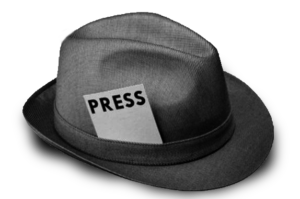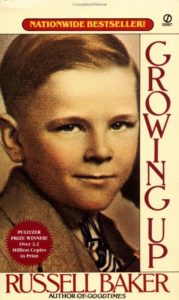
I missed the fedora years, but worked with a few reporters from that era.
Mark Twain said finding the right word is like capturing lightning.Sometimes the muse allows you to experience what that’s like. Sometimes the muse goes missing.
These days, I’m chasing lightning. I’m trying to see things, trying to look deeper, trying to slow things down just enough to understand a little bit more. I’m trying to catch lightning and put it out into the world.
I write this blog, have written two books (and sold two copies of those books!) but if you want to write, you write. It doesn’t matter if it sells, you keep putting your thoughts out into the world. And who knows, maybe someday…
I write because I love it. I write because it helps me order my cluttered mind and I write because occasionally I strike a nerve and someone sends me a kind note or stops me at the grocery store and mentions that they liked this or that.
You remember the slings and arrows—they leave a mark. But a kind word is fuel. High octane fuel.
I don’t expect to be James Patterson or Stephen King, I just write for the pure pleasure of it.
Once upon a time I made a living as a journalist. You make very little money, but you learn a little bit about a whole lot of things.I covered business, crime, government, agriculture, education and sports. I wrote feature stories and had a blast doing it.
There’s nothing like working in a newsroom, surrounded by young talent and grizzled veterans. Some of those grizzled veterans liked us newbies and others couldn’t tolerate us. I liked every single one of them. Those that were friendly, became friends and mentors. Those that couldn’t stand the sight of us also managed to teach us —a curse word at a time.
Our city editor when I started writing about Delray was a guy named Tom Sawyer. That was his real name. I was 22 years old when I started at the Monday-Thursday Papers and Tom took me out to lunch on my first day. We went to Tom Sawyer’s restaurant on Boca Raton Boulevard and he told me that the place was named after him. I think I believed him. Tom was slight in stature but loomed large in life. He had a big bark, but a soft heart. He had been around the block many times and would turn beet red when he was mad, which was at least once a day. You never wanted to be the reporter, editor or photographer who made Tom red. He would stand in the middle of the newsroom and cover his eyes with his hands waiting for the rage to pass.
I liked him. He was my “Lou Grant” and I knew if I listened he could teach me a lot.
I became especially close to a sportswriter named Jim. He was a terrific writer, immensely gifted but a classic underachiever.He wore sweaters year round, even in summer, had a beautiful dog named Mario and he loved women.I sat next to him in the newsroom and we exchanged copy. I’d look at his stories and he’d look at mine.I was young and trying to figure things out, he was older and experienced. He had style and craft and when I read his stories I knew I had a long way to go. He was good. Real good.He was also troubled.
Sometimes, after work, we’d go to a bowling alley bar off of Cypress Creek Road for a beer. I thought it was an odd location, but I’d follow Jim anywhere thinking that maybe over beers I’d gain a nugget of advice that would make me a better journalist.I soon learned that he went to the bowling alley bar because he had a thing for the bartender who looked a lot like Elvira—Google her and you may remember.He wasn’t exactly there to give me tips, but it was fun anyway.
One evening, the movie “Platoon” was playing at the bar and my cool friend suddenly broke out in a cold sweat. Without taking his eyes of the screen, he recounted his experiences in Vietnam as a medic. His knuckles turned white as he gripped the bottle of beer in his hands. He was riveted by the movie. “This is what it was like,” he said. And then he stopped talking, but in that instant I saw what my friend was wrestling with.
It was an unforgettable moment, and I learned a lot that night. Every experience makes you a better writer. Jim left the paper for a new life in Denver, but he made a lasting impression. I’ve been looking for him ever since.
I left journalism a long time ago, but journalism never left me. The writing part anyway.As we speak, I’m trying to write a play. It’s a stretch for me, the craft requires different muscles but I think challenging yourself as you get older is a good thing. I don’t know if it’s any good, or if it will ever see the light of day, but I’m determined to finish.I’m trying to catch lightning. And I don’t plan to stop any time soon.




